|
Books Should Be Free Loyal Books Free Public Domain Audiobooks & eBook Downloads |
|
|
Books Should Be Free Loyal Books Free Public Domain Audiobooks & eBook Downloads |
|
Non-fiction |
|---|
|
Book type:
Sort by:
View by:
|
By: Stephen Leacock (1869-1944) | |
|---|---|
 My Discovery of England
My Discovery of England
"In the course of time a very considerable public feeling was aroused in the United States and Canada over this state of affairs. The lack of reciprocity in it seemed unfair. It was felt (or at least I felt) that the time had come when some one ought to go over and take some impressions off England. The choice of such a person (my choice) fell upon myself. By an arrangement with the Geographical Society of America, acting in conjunction with the Royal Geographical Society of England (to both of whom I communicated my proposal), I went at my own expense."And from thence follow the impressions of Canadian political economist and humourist, Stephen Leacock, after a lecturing visit to England. | |
By: Steve Solomon | |
|---|---|
 Gardening Without Irrigation: or without much, anyway
Gardening Without Irrigation: or without much, anyway
Gardening expert Steve Solomon has written extensively on gardening techniques for the home gardener. Water conservation is the focus of this work, along with more information on how to have the healthiest plants in your garden through “fertigation”, appropriate plant rotation, and soil preparation. | |
 Organic Gardener's Composting
Organic Gardener's Composting
The art and science of composting is presented in a humorous and readable manner from the basic elements to the in-depth science. An entire chapter is devoted to composting with red worms (vermiculture), and detailed information is provided on building different types of composting units. The history of the organic gardening movement is included as well as an annotated bibliography of works on the subjects of composting and food gardening. | |
By: Susan Coolidge (1835-1905) | |
|---|---|
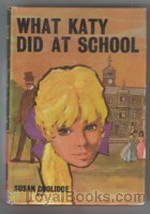 What Katy Did at School
What Katy Did at School
The continuing story of Katy Carr, recounting the time she spent at boarding school with her sister Clover. | |
By: Susan Edmonstoune Ferrier | |
|---|---|
 Marriage, Volume 1
Marriage, Volume 1
“Love!–A word by superstition thought a God; by use turned to an humour; by self-will made a flattering madness.” – Alexander and Campaspe. Lady Juliana, the indulged and coddled seventeen (”And a half, papa”) year old daughter of the Earl of Cortland, is betrothed by her father to a wealthy old Duke who can give her every luxury. She instead runs away and marries her very handsome but penniless lover. Very soon, they are forced to travel to Scotland to live with his quirky family in a rundown “castle” in the barren wilderness. Can this marriage survive?(Summary by P.Cunningham) | |
 Inheritance
Inheritance
"As the noblest attribute of man, family pride had been cherished time immemorial by the noble race of Rossville. Deep and incurable, therefore, was the wound inflicted on all its members by the marriage of the honorable Thomas St. Clair, the youngest son of the Earl of Rossville, with the humble Miss Sarah Black, a beautiful girl of obscure origin and no fortune." And so the stage is set for our plot, which focuses on the implications and complications of the return from France to Scotland of the Rossville widow and her daughter-heiress Gertrude, who must suffer the onslaught of relations and suitors as well as a mysterious, threatening stranger who plagues her mother... | |
By: Susanna Moodie (1803-1885) | |
|---|---|
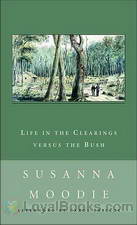 Life in the Clearings
Life in the Clearings
If you've read Margaret Atwood's Alias Grace, the historical fiction novel that describes a gruesome double murder in Canada in 1843, you would be interested to know the sources that were used by Atwood during her research. Life in the Clearings by Susanna Moodie was one such reference book in which the author, Susanna Moodie recounts her meeting with the infamous murderess Grace Marks, a young house help who was convicted to life imprisonment for her role in the slaying of her employers. Susanna Moodie was an Englishwoman born in Suffolk... | |
 Roughing It in the Bush
Roughing It in the Bush
'Roughing It In the Bush' is Susanna Moodie's account of how she coped with the harshness of life in the woods of Upper Canada, as an Englishwoman homesteading abroad. Her narrative was constructed partly as a response to the glowing falsehoods European land-agents were circulating about life in the New World. Her chronicle is frank and humorous, and was a popular sensation at the time of its publication in 1852. | |
By: T. D. Bonner (1810-1883) | |
|---|---|
 Life and Adventures of James P. Beckwourth
Life and Adventures of James P. Beckwourth
Buried amid the sublime passes of the Sierra Nevada are old men, who, when children, strayed away from our crowded settlements, and, gradually moving farther and farther from civilization, have in time become domiciliated among the wild beasts and wilder savages — have lived scores of years whetting their intellects in the constant struggle for self-preservation; whose only pleasurable excitement was found in facing danger; whose only repose was to recuperate, preparatory to participating in new and thrilling adventures... | |
By: T. F. Thiselton Dyer (1848-1923) | |
|---|---|
 Strange Pages from Family Papers
Strange Pages from Family Papers
“Among other qualities which have been supposed to belong to a dead man’s hand, are its medicinal virtues, in connection with which may be mentioned the famous ‘dead hand,’ which was, in years past, kept at Bryn Hall, Lancashire… Thus the case is related of a woman who, attacked with the smallpox, had this dead hand in bed with her every night for six weeks, and of a poor lad living near Manchester who was touched with it for the cure of scrofulous sores.” Though not all chapters have such gruesome subjects as The Dead Hand, all are full of a curious mixture of superstition and local history that will delight and amuse the modern listener. | |
By: Tacitus, Publius Cornelius (c. 56-117) | |
|---|---|
 The Works of Tacitus Vol. I, edited, translated, and with essays by Thomas Gordon
The Works of Tacitus Vol. I, edited, translated, and with essays by Thomas Gordon
The historical works of Tacitus are a history of the period from A.D. 14 to 96 in thirty volumes. Although many of the works were lost (only books 1-5 of the Histories and 1-6 and 11-16 of the Annals survive), enough remains to provide a good sense of Tacitus’s political and moral philosophy. Tacitus recognized the necessity for strong rulers but argued that more should be done to manage the succession of power and allow for the ascension of talent. He asserted that it was the dynastic ambitions of Rome’s many emperors that caused the decline of moral and political life and precluded the possibility of recruiting leaders of real ability... | |
By: Talbot Hughes (1869-1942) | |
|---|---|
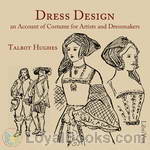 Dress Design: An Account of Costume for Artists and Dressmakers
Dress Design: An Account of Costume for Artists and Dressmakers
Explanations of Western European trends in men and women's fashion from prehistoric times to the Victorian Era. | |
By: Thames Williamson | |
|---|---|
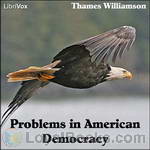 Problems in American Democracy
Problems in American Democracy
Problems in American Democracy is a very detailed, specific explanation of some of the underlying and surface problems of a democracy system of government, particularly of the American form of democracy. Though lengthy, it is a great read for people who want to learn more about different types of government and the foundations of our own government in the United States of America. | |
By: The 9/11 Commission | |
|---|---|
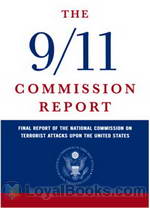 The 9/11 Commission Report
The 9/11 Commission Report
Taking the reader back to the horror and devastation of September 11, 2001, the 9/11 Commission Report by the 9/11 Commission, is the official report that presents the final findings of the committee Krean Hamilton Commission (better known as the 9/11 Commission.) The report reveals not just the events that happened on that fateful day, but also describes the circumstances that led up to it. It analyzes the role of several government agencies in the drama and also pinpoints the lacunae in the system that allowed such events to occur... | |
By: The Securities and Exchange Commission | |
|---|---|
 A Plain English Handbook: How to create clear SEC disclosure documents
A Plain English Handbook: How to create clear SEC disclosure documents
The Plain Writing Act of 2010 is intended to make it easy for the public to understand government documents. The SEC, like other federal agencies, must write documents in plain writing, defined under the Act as writing that is "clear, concise, well-organized, and follows other best practices appropriate to the subject or field or audience." Starting in October 2011, the Act requires us to write new and substantially revised documents in plain language using the Federal Plain Language Guidelines... | |
By: the Three Initiates (1908) | |
|---|---|
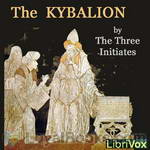 The Kybalion
The Kybalion
The Kybalion: Hermetic Philosophy is a 1908 book claiming to be the essence of the teachings of Hermes Trismegistus, published anonymously by a group or person under the pseudonym of “the Three Initiates”. (Introduction by Wikipedia) | |
By: The Three Initiates | |
|---|---|
 Kybalion (version 2)
Kybalion (version 2)
The Kybalion: Hermetic Philosophy is a 1908 book claiming to be the essence of the teachings of Hermes Trismegistus, published anonymously by a group or person under the pseudonym of "the Three Initiates". The Kybalion was first published in 1908 by the Yogi Publication Society and is now in the public domain, and can be found on the internet. The book purports to be based upon ancient Hermeticism, though many of its ideas are relatively modern concepts arising from the New Thought movement. The book early on makes the claim that it makes its appearance in one's life when the time is appropriate and includes variations of material found in the book of Proverbs... | |
By: The Venerable Bede (673-735) | |
|---|---|
 Ecclesiastical History of England
Ecclesiastical History of England
Bede's Ecclesiastical History of England is a work in Latin by Bede on the history of the Christian Churches in England, and of England generally; its main focus is on the conflict between Roman and Celtic Christianity. It is considered to be one of the most important original references on Anglo-Saxon history. It is believed to have been completed in 731, when Bede was approximately 59 years old. Divided into five books, it covers the history of England, ecclesiastical and political, from the time of Julius Caesar to the date of its completion (731)... | |
By: Theodor Herzl (1860-1904) | |
|---|---|
 A Jewish State
A Jewish State
Read in English, this is a pivotal document in the history of Zionism and the State of Israel. Herzl designed this work to elevate the discussion of "the Jewish Question" so it would "no longer take the form of violent abuse or sentimental vindication but of a debate, practical, large, earnest, and political." While few of Herzl's proposals were actually carried out, the importance of A JEWISH STATE was in the groundswell of support for a Jewish homeland engendered by its solutions to the practical problems of establishing a new state... | |
By: Theodore Arnold Haultain (1857-1941) | |
|---|---|
 Hints for Lovers
Hints for Lovers
“Hints for Lovers” is a thorough analysis of relationships between men and women, about everything that lovers should know, and delves deep into the psychology of men and women, and the philosophy of courtship, engagement, kissing, making love, marriage, etc, in a light-hearted tone, with refreshing humor. | |
By: Theodore Roosevelt | |
|---|---|
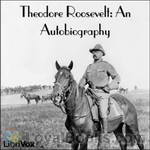 Theodore Roosevelt: An Autobiography
Theodore Roosevelt: An Autobiography
In his vital, illustrative and dynamic autobiography, Theodore Roosevelt let us into the life that formed one of the greatest and outspoken presidents in American history. Not only are we privy to the formation of his political ideals, but also to his love of the frontier and the great outdoors. | |
 Through the Brazilian Wilderness
Through the Brazilian Wilderness
Roosevelt’s popular book Through the Brazilian Wilderness describes his expedition into the Brazilian jungle in 1913 as a member of the Roosevelt-Rondon Scientific Expedition co-named after its leader, Brazilian explorer Cândido Rondon. The book describes all of the scientific discovery, scenic tropical vistas and exotic flora, fauna and wild life experienced on the expedition. One goal of the expedition was to find the headwaters of the Rio da Duvida, the River of Doubt, and trace it north to the Madeira and thence to the Amazon River... | |
 The Naval War of 1812
The Naval War of 1812
Somewhat detailed history of naval engagements between the United States and England during the War of 1812, from a decidely American perspective. Completed by the author as a young man at age 24. After 120 years, it remains a standard study of the war. | |
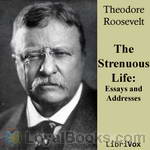 Strenuous Life: Essays and Addresses of Theodore Roosevelt, The
Strenuous Life: Essays and Addresses of Theodore Roosevelt, The
This book is a collection of Theodore Roosevelt’s published commentaries and public addresses on the general theme of the requirements for individual and collective success in the personal, civic, political, and social arenas. (Introduction by Bob Neufeld) | |
By: Théodule Ribot (1839-1916) | |
|---|---|
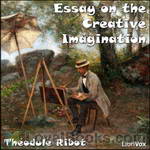 Essay on the Creative Imagination
Essay on the Creative Imagination
“It is quite generally recognized that psychology has remained in the semi-mythological, semi-scholastic period longer than most attempts at scientific formulization. For a long time it has been the “spook science” per se, and the imagination, now analyzed by M. Ribot in such a masterly manner, has been one of the most persistent, apparently real, though very indefinite, of psychological spooks. Whereas people have been accustomed to speak of the imagination as an entity sui generis, as a... | |
By: Theron Q. Dumont (1862-1932) | |
|---|---|
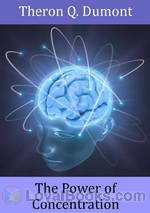 The Power of Concentration
The Power of Concentration
Though he wrote more than 100 books during his lifetime, Theron Q Dumont is largely a forgotten entity today. In fact, Theron Q Dumont is not even his real name. It is a pen-name adopted by William Walker Atkinson, an American polymath, who began his career as a grocer's assistant in nineteenth century Baltimore, studied law and went on to amass fame and fortune as a successful legal luminary. However, disaster struck when he suffered a nervous breakdown due to over strain and he lost everything that he had earned... | |
By: Thomas a Kempis (1380?-1471) | |
|---|---|
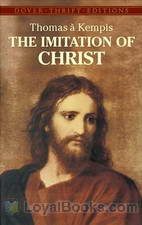 The Imitation of Christ
The Imitation of Christ
The Imitation of Christ is widely considered one of the greatest manuals of devotion in Christianity. The life of Christ is presented as the highest study possible to a mortal, as Jesus’ teachings far excel all the teachings of the saints. The book gives counsel to read the scriptures, statements about the uses of adversity, advice for submission to authority, warnings against temptation and how to resist it, reflections about death and the judgment, meditations upon the oblation of Christ, and admonitions to flee the vanities of the world. A recording of a Dutch translation of this work is also available (Thomas a Kempis was Dutch but wrote in Latin of course). | |
By: Thomas Babington Macaulay (1800-1859) | |
|---|---|
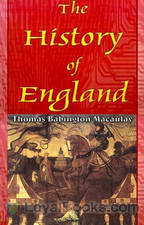 The History of England, from the Accession of James the Second
The History of England, from the Accession of James the Second
Hailed more as a literary masterpiece than an accurate account of historical facts, The History of England from the Accession of James the Second by Thomas Babington Macaulay is an admirable mix of fact and fiction. Modern day readers may find much that is offensive and insensitive in this five volume work which covers a particular period in the long and eventful history of Britain. However, it is certainly a book that leads the reader on to further research into the events and people mentioned... | |
 History of England, from the Accession of James II - (Volume 4, Chapter 21)
History of England, from the Accession of James II - (Volume 4, Chapter 21)
This is volume 4 chapter 21 of a series of books written by the Baron Macaulay (1800-1859) in the 19th century. It starts with a brief resume of the history of England up until the Stuart kings and then starts to delve into a little more detail. Macaulay is primarily fascinated by ending of any claim to divine right of kings and the growing role of Parliament in the governing of the country. He sees the accession of William and Mary (Dutch, Protestant royalty) to the British throne as a key moment in the history of the British Isles. This is a book delightful for the literary gifts of the author and intriguing for his view of 19th century English and world politics.(Jim Mowatt) | |
By: Thomas Barlow Wood (1869-1929) | |
|---|---|
 Story of a Loaf of Bread
Story of a Loaf of Bread
According to the author in the preface, he has "ventured to write this little book with some diffidence, for it deals with farming, milling and baking, subjects on which everyone has his own opinion." The earlier chapters give a brief sketch of the growing and marketing of wheat, followed by chapters on various aspects that impact the quality of wheat, the baking process and the characteristic of the final product, bread. The author aimed at making the reader realise that the farmer’s share in the production of the staple food of the people is by no means the simple affair it appears to be. - Summary by Leni | |
By: Thomas Bastard (1818-1883) | |
|---|---|
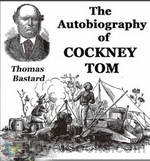 The Autobiography of Cockney Tom
The Autobiography of Cockney Tom
The Autobiography of Cockney Tom, Showing his Struggles through Life, and proving this Truth of the Old Saying "that Honesty is the best Policy". Set in England, South Australia and the goldfields of Victoria Australia in the 1800's. | |
By: Thomas Beames (1815-1864) | |
|---|---|
 Rookeries of London
Rookeries of London
Rev. Thomas Beames was a preacher at St. James, Westminster in London. He compiled his own eye-witness accounts of the most notorious of the slum areas, the Rookeries. In this essay, he passionately discusses the effects of poverty and the mistreatment of the poor and working classes. Much of what he says is still valid today; for example, in discussing over-population and emigration, he mentions the mis-use of land in Britain: "... large tracts of land, such as in Derbyshire, seem only valuable as grouse preserves... | |